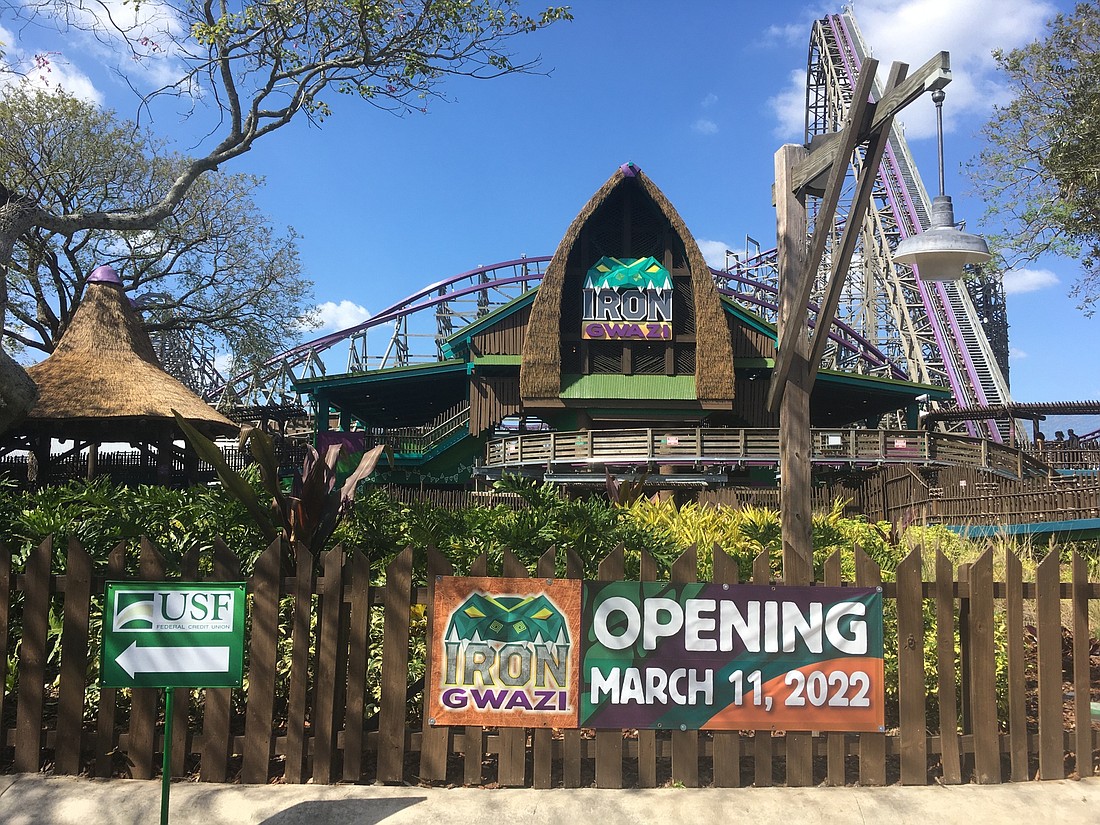- December 15, 2025
-
-
Loading

Loading

TAMPA — Busch Gardens Tampa Bay has opened, at long last, its highly anticipated Iron Gwazi rollercoaster.
The park made the ride available to annual pass-holders, members of the media and other VIPs in mid-February, with a grand opening for all guests scheduled for March 11 — approximately two years after it had been scheduled to debut. The pandemic shut down theme parks for much of 2020, and although SeaWorld Parks & Entertainment, Busch Gardens’ Orlando-based parent company, had said Iron Gwazi would open in November 2021, that date came and went with no new coaster, leaving fans in the dark.